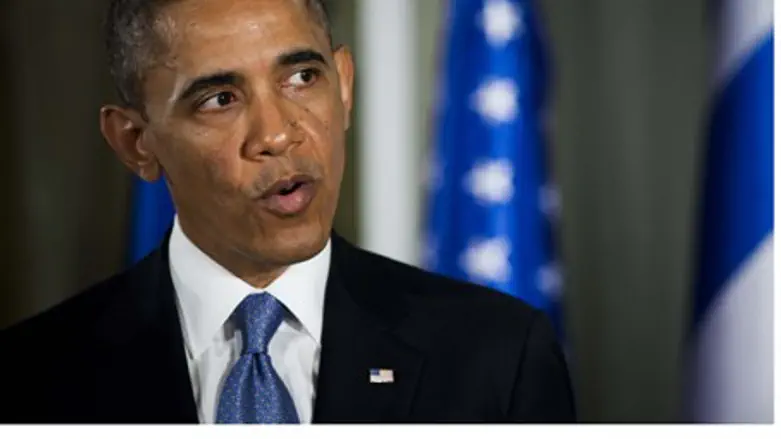
US President Barack Obama has asked Congress for its backing to fight the Islamic State group without geographical limits, but with curbs on the use of ground forces, AFP reports Tuesday.
Tantamount to a declaration of war, the authority would allow Obama to prosecute the fight against the jihadist group on a firmer legal basis, while providing political cover at home.
It signals a ramping up of pressure on ISIS - which now controls swaths of Syria and Iraq - as the Iraqi government prepares for a major ground offensive, expected within months.
But intensive negotiations with US lawmakers forced the White House to limit Obama's power to deploy the military in both form and scope.
The text "does not authorize the use of the United States Armed Forces in enduring offensive ground combat operations," the text sent Congress read.
That does not rule out special forces operations, but does preclude a ground invasion or peace enforcement mission.
"This authorization for the use of military force shall terminate three years after the date of the enactment of this joint resolution, unless reauthorized."
Obama will also have to report to Congress every six months.
But there is no geographical limit on the scope of military actions.
Since the mid-2014 the US military has been involved in airstrikes against ISIS in Iraq and Syria, in what has been dubbed so far as "Operation Inherent Resolve."
Republican Senator Bob Corker, who chairs the Senate foreign relations committee, said he would "quickly begin to hold rigorous hearings" on the authorization, which he supports.
Abrupt change in policy?
The request itself marks a dramatic about-face for Obama, however - who has quietly worked to tone down the US's 'war on terror' over the past several years.
Obama spearheaded the campaign for a complete US pullout from Iraq, which was completed during his first term, in December 2011.
Prisoner swaps have also become more common recently, both with terror groups in the Middle East and with former sworn enemies of the US.
In May, the policy became the subject of intense scrutiny after the controversial return home of US soldier and longtime captive Sergeant Bowe Bergdahl, who was traded for five top Taliban terrorists.
Weeks later, an anonymous White House official revealed to Reuters that a Frenchman, a Kuwaiti and ten Pakistani prisoners were sent back to their respective home countries at the end of May.
More recently, Obama completed a high-profile prisoner swap with Cuba, in exchange for longtime Jewish-American captive Alan Gross - and renewed diplomatic relations with Havana.
And just weeks ago, an insider revealed to the Daily Beast that a potential swap with Qatar - trading a top Al Qaeda terrorist for a US couple held prisoner there - had been on the table last year, but then scrapped at the last minute.